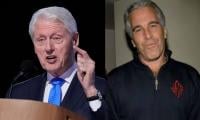The Panama verdict
Legal eye
If moral legitimacy determined political fortune and success, the Panama verdict would have sounded the death-knell of Sharif politics. The case against the PM was that he is guilty of corruption as he and/or his dependents (or benamidars) own/possess assets disproportionate to his known sources of income.
The PM accepted that his children own flats in London. But none of the judges could be convinced that the PM’s children own flats on their own behalf, not the PM’s. And they unanimously rejected explanations by the PM and his progeny regarding how they came to own the flats.
It was the application of the principles of law to the facts before them over which the judges disagreed. We thus saw five individual opinions, with three agreeing to form a JIT for further investigation of disputed facts and two willing to sack the PM for failing to posit a credible story during the proceedings before the Supreme Court.
The apex court concluded that our PM had been economical with the truth when he spoke on the issue in parliament and that explanations provided to the SC of how his children came to own the flats were (as one judge put it) ‘ludicrous’. Can there be a more damning indictment of an elected PM in a decent polity?
So who won and who lost? Depends on how you define winning and losing. If Imran Khan’s objective was to have our highest court endorse his view that the robes of virtue our emperor claims to adorn are no clothes at all, then he has won. Notwithstanding which of the five opinions you read (Justice Khosa’s is of course the most enjoyable from a literary perspective as he paints the picture with bright sparkling colours), the conclusion that our PM has not been truthful and forthcoming about how his family acquired the flats is unmistakable. Such has been the damage that even Zardari is calling the kettle black.
So why is the PML-N celebrating? If the goal was to convince the SC not to throw the PM out on Constitutional Avenue kicking and screaming at least for now, the PML-N has won. The PML-N’s assessment is that the damage inflicted by the ignominy brought along by Panama won’t be fatal. And so long as an injured Nawaz Sharif lives to fight the 2018 election, moral bankruptcy will be compensated by electoral success. The SC has set into motion a process that could conceivably culminate in the PM’s disqualification. But there’s many a slip between the cup and the lip. The PML-N is celebrating because NS has dodged the bullet for now.
“Great cases like hard cases make bad law. For great cases are called great, not by reason of their importance...but because of some accident of immediate overwhelming interest which appeals to the feelings and distorts the judgment”, Justice Oliver Wendell Holmes Jr of the US Supreme Court had written in Northern Securities Company vs US. While the Panama decision has given everyone something to hang by, no one is completely happy with it for it has produced no immediate political consequences. Had judges’ opinions not been as cathartic (especially for the PM’s foes), the SC would have attracted a lot more criticism.
But the SC’s majority order is the right order. The Panama Papers revealed assets of the PM’s children. They offered a fantastic story of how they came to own the assets outside Pakistan, a story no one was willing to believe – including the SC. The other narrative was that the flats were illegally purchased by the PM in the 1990s; this was backed by inquiries conducted against the Sharifs and court cases filed at the time (which didn’t go anywhere for various reasons). The option before the SC was to sack an elected PM on the basis of allegations and the fable proffered by him in response, or call for further investigation. It rightly opted for the latter.
We have five individual opinions in the Panama case. Justices Azmat Saeed and Ijaz-ul-Ahsan have agreed with the conclusions drawn by Justice Ejaz Afzal. But this agreement is over the result and not the reasoning by which the result has been reached. So while Justice Ejaz Afzal’s opinion could arguably be called a plurality opinion, the majority decision is just the part identified as ‘Order of the Court’. There is no majority judgment or reasons that form binding precedent. The opinions of Justices Asif Khosa and Gulzar Ahmed are dissents to the result arrived at by the majority and the principles of law on which the result is based.
Panama, the scandal, focused global attention on the need to hold to account those sitting atop the echelons of power for hidden assets amassed while in public office. Much as the Panama case was about a PM’s accountability in a democracy, it was also about the scope and extent of the judiciary’s power (as one of the three pillars of state) and the manner of its exercise. We ended up with a JIT and not a sacked PM because a majority on the bench concluded that sending an elected PM packing in exercise of its original 184(3) jurisdiction on the basis of disputed facts would be an act of judicial overreach not backed by our constitution.
The divergent approaches of the judges to the principles and provisions of law come out most clearly in Justice Ejaz Afzal’s opinion. He holds that: one, there is no legal obligation to declare assets of children if such assets aren’t held by them as dependents/ benamidars; two, if assets are held by dependents/benamidars beyond the known means of a public office-holder and he fails to account for them, the offence has to be established through trial under the NAB Ordinance ie due process can’t be scuttled; and three, a declaration of disqualification under Article 62 is to be made by a court of plenary jurisdiction and not the SC under 184(3).
Highlighting the obvious, he states, “who does not know that making a statement on oath in a trial lends it an element of solemnity; cross-examination provides safeguards against insinuation of falsehood in the testimony; provisions of the Qanoon-e-Shahadat Order regulate relevancy of facts, admissibility of evidence and mode of proof through oral and documentary evidence and thus ensure due process of law. We for an individual case would not dispense with due process and thereby undo, obliterate and annihilate our jurisprudence which we built up in centuries in our sweat, in our toil, in our blood.”
The JIT has been tasked to investigate essentially two things: one, does the PM own assets outside Pakistan disproportionate to his known sources of income that he cannot account for? And two, are money-minting assets owned by his children as separate legal persons or as his benamidars ie can they reasonably establish that they acquired such assets through independent legal means? Short of the Sharifs miraculously conjuring up a new and believable explanation for the source of funds that led to acquisition of their foreign assets or admitting their guilt, the JIT report won’t produce undisputed facts if it produces anything at all.
Even if we disregard problems that the JIT will face in gathering facts (given that it will have no authority to independently seek information from authorities in foreign states), once a final report is submitted to the new bench to be constituted by the CJ we will be back to square one. The Panama judgment is no binding precedent. The new bench will again need to determine if it can issue a declaration of disqualification under Article 62 on the basis of contested facts in exercise of 184(3) powers. If it follows the majority opinion, it will at best instruct NAB to file a reference against the PM on the basis of the JIT report.
Panama will stick to the Sharifs like tar. But it looks like our politicos will still have to fight it out in the political arena in 2018.
The writer is a lawyer based in Islamabad.
Email: sattar@post.harvard.edu
-
 Trump Administration Warns Of Slow Payouts For Tariff Refunds Amid Intensifying Trade Disputes
Trump Administration Warns Of Slow Payouts For Tariff Refunds Amid Intensifying Trade Disputes -
 Princess Beatrice 'far From Comfortable' After Father Andrew's Arrest
Princess Beatrice 'far From Comfortable' After Father Andrew's Arrest -
 Sarah Ferguson’s Dual Cancer Journey
Sarah Ferguson’s Dual Cancer Journey -
 GTA 6 Security: Rockstar Blocks Leaks Ahead Of Launch
GTA 6 Security: Rockstar Blocks Leaks Ahead Of Launch -
 Demi Moore's New Look At Milan Fashion Week Sparks Serious Concern
Demi Moore's New Look At Milan Fashion Week Sparks Serious Concern -
 AI Reopens Swedish PM Olof Palme Assassination Cold Case After Decades
AI Reopens Swedish PM Olof Palme Assassination Cold Case After Decades -
 Nvidia’s New Specialized Chip Aims To Accelerate AI Processing Speeds
Nvidia’s New Specialized Chip Aims To Accelerate AI Processing Speeds -
 Demi Moore Was Left With ‘intense’ Illness After ‘The Substance’
Demi Moore Was Left With ‘intense’ Illness After ‘The Substance’ -
 How AI Can Read Your Thoughts Without You Speaking?
How AI Can Read Your Thoughts Without You Speaking? -
 Elon Musk’s Grok Faces Scrutiny From Federal Agencies Amid Pentagon-Anthropic Standoff–Here’s Why
Elon Musk’s Grok Faces Scrutiny From Federal Agencies Amid Pentagon-Anthropic Standoff–Here’s Why -
 ‘I Saw Nothing’: Bill Clinton Denies Knowledge Of Epstein’s Crimes In House Testimony
‘I Saw Nothing’: Bill Clinton Denies Knowledge Of Epstein’s Crimes In House Testimony -
 Jim Carrey Makes Surprising Confession About Rarely Seen Girlfriend Min Ah
Jim Carrey Makes Surprising Confession About Rarely Seen Girlfriend Min Ah -
 How Michael J. Fox Helped Harrison Ford With His Parkinson's Monologue
How Michael J. Fox Helped Harrison Ford With His Parkinson's Monologue -
 AI Safety Battle: Anthropic Fires Back At Pentagon After US Military Flags It ‘supply Chain Risk’
AI Safety Battle: Anthropic Fires Back At Pentagon After US Military Flags It ‘supply Chain Risk’ -
 OKC Vs Nuggets: NBA MVP Shai Gilgeous-Alexander Scores 36 In Fiery Overtime Win
OKC Vs Nuggets: NBA MVP Shai Gilgeous-Alexander Scores 36 In Fiery Overtime Win -
 Eric Dane's Biggest Regret Comes To Light Following Days Of His Death
Eric Dane's Biggest Regret Comes To Light Following Days Of His Death



